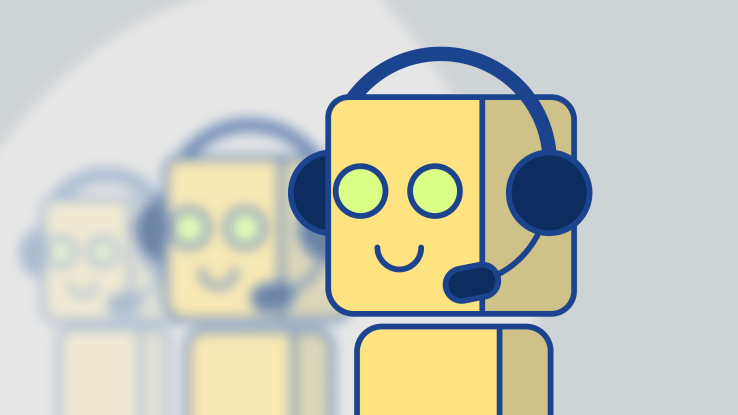Bots, Messenger and the future of customer service.

In the 1970s, CFOs sat with CEOs and devised ways for upset consumers to not be able to get compensation easily. They put up automated phone systems and arcane and inflexible policies and rejoiced at how little the company had to “give up” to complaining customers.
And this system worked… until social media gave every average “Joe” the same power as society’s most prominent citizens to get a company’s attention when they weren’t happy.
Watching F8 last month, one couldn’t help but wonder if the future is truly as simple as opening a chat and texting what you need. Order flowers ✔ Get news ✔ Check the weather ✔ Handle customer service issues?
How many of us who have called our cable company and been on hold “forever” wouldn’t love to chat with a rep and get our issue handled in a minute (Amy Schumer would agree)? How many of us would love to chat with an airline and resolve an issue in real time? While these things sound great in theory, it’s not quite so simple.
Chat is a better medium than the phone for most people, especially younger people. But it doesn’t solve everything. An inarticulate consumer is going to be inarticulate over chat. A rep that’s having a bad day is going to be just as inflexible and unsympathetic in a chat. Changing the medium isn’t a silver bullet for customer service.
Bots can help with customer service. They can gather information for the eventual interaction with a human rep, understand exactly what happened and what the consumer wants and even be empowered to solve basic issues, automatically.
Bots have been around a long time — phone systems ask you to speak your account number, say what you’re calling about or push a digit corresponding to what you want. The difference is that, while those kinds of bots typically annoy customers, chatbots have the potential to have the reverse effect.
The right balance of “bot” and “human” is going to be different for each company, and it depends greatly on the quality of the bot — and, of course, the quality of their human customer service reps.
I believe in an intelligent mix of humans and bots to get the job done — the “job” being making a consumer happy when things go awry, while being fair to the business.
Over time, AI (“bots”) will get smarter, and brands will trust it more to solve issues for them. Imagine the cable company allowing you to schedule an appointment in 30 seconds via a chat (versus 5-25 minutes on the phone). Imagine a retailer replacing a defective product in seconds. Or a hotel making up for a bad experience by awarding points. Bots can handle all these scenarios automatically, freeing up the brand’s valuable (and expensive) reps to handle the issues that truly require a human touch.
Facebook’s Messenger platform is just one of many future platforms where you’ll be able to handle customer service issues. By blending smart software with a light human touch, consumers will have a better experience when they need customer service, and companies will avoid nasty tweet storms, negative online reviews and the kind of brand damage consumers are now capable of inflicting when they’re upset.
The future of customer service is making it easy for consumers to go through the medium they want (likely not the phone), have an experience that respects their time and have issues resolved quickly, ideally without involving a human at all (via intelligent software).
In the future, “customer service” won’t be something consumers dread having to call, it will be something that builds powerful relationships with consumers. The best marketing is great customer service, and chatbots are a great step forward.
Bots, Messenger and the future of customer service.
![Bots, Messenger and the future of customer service.]() Reviewed by Unknown
on
02:02:00
Rating:
Reviewed by Unknown
on
02:02:00
Rating:
No comments: